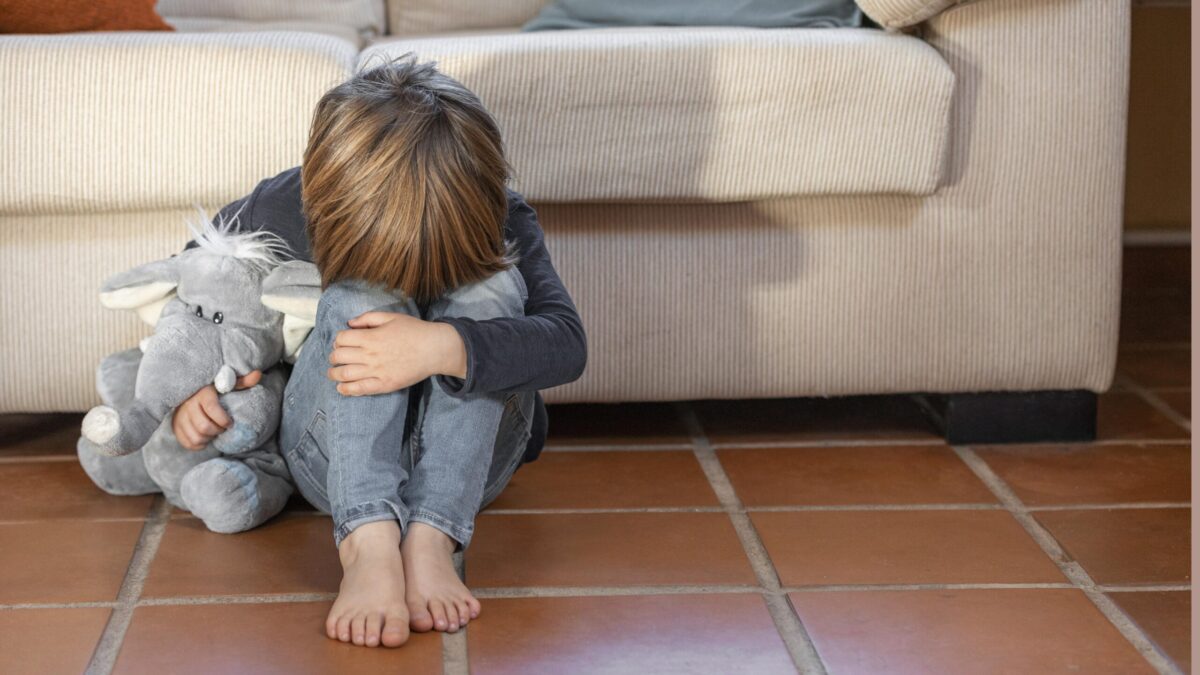Craig Carlisle’s concern since the day he became chair of the Alabama Baptist Sexual Abuse Task Force in November 2021 has been that nothing would change in the churches.
“I’m sharing with my fellow [associational mission strategists] that ‘if this doesn’t become important to you, then it’s not going to be important to your churches,’” said Carlisle, director of missions for Etowah Baptist Association.
Carlisle shared that message during a recent meeting of associational mission strategists. He also shared it with 23 Etowah Association churches at a Feb. 2 sexual abuse response symposium at 12th Street Baptist Church in Rainbow City.
Carlisle spoke on the spiritual harm of abuse, and participants also heard from the local district attorney, sheriff, Department of Human Resources (DHR) and counselors.
Later this month, Carlisle will speak on the topic as part of a deacons training workshop in Cleburne Baptist Association. Carlisle hopes other associations will pick up the mantle of training pastors and church leaders in best practices for preventing and addressing sexual abuse in the church.
Mandatory reporters
In January, Alabama’s SATF was renamed the Sexual Abuse Advisory Task Force, but the same members and the same purpose remain in place, Carlisle said — to equip Alabama Baptist churches with the knowledge and resources to prevent abuse in the church.
One of the most frequent questions task force members have received deals with Alabama’s mandatory reporting laws and how they apply to pastors, said Melissa Bowen, a retired attorney and vice chair of the Alabama Sexual Abuse Advisory Task Force.
Alabama is a mandatory reporting state for all forms of child abuse and neglect — physical abuse, sexual abuse, emotional abuse and child neglect.
Mandatory reporting is a legal requirement that certain professionals, whether paid or volunteer, must report any suspected abuse or neglect of children under the age of 19 to DHR or local law enforcement, depending on the circumstances. (In Alabama, legal adulthood begins on an individual’s 19th birthday.)
Mandatory reporters include ministers, child care workers, teachers and any other person called upon to render aid or medical assistance to any child. In the church context, if you work with or are in contact with a child or children at your church, you are a mandatory reporter, Bowen said.
“That means if you have suspicions or knowledge of child abuse or neglect, you must report those concerns immediately to the proper authorities,” she said.
Pastors are not exempt from these laws, she emphasized. Though in the past it was common for pastors to let a child’s parents determine next steps when abuse was perpetrated by someone in the church, doing so today is a criminal offense.
Failure to report the matter promptly to local law enforcement or DHR can result in a Class C misdemeanor charge, punishable by up to three months in prison and/or $500 in fines.
Many pastors have heard about an exception for “privileged” information shared with a clergy member as “confidential communication,” Bowen said. The common thought is that such information must be kept secret, but that isn’t the right interpretation, she said.
Look for reasons to help
“The ‘out’ for clergy is the issue of privilege,” Bowen said. “However, to my mind, there should be a bias in favor of reporting. Remember that reporting is just that — filing a report so that the proper authorities can investigate the suspicions.”
Bowen said she believes pastors should look for ways it will be “permissible” to report rather than ways to get out of reporting.
“Maybe there’s talk in the church. Maybe you as a pastor, leader or teacher have noticed something about the child’s behavior or about an adult’s treatment of a child (often called ‘grooming,’ which means that the abuser takes deliberate, manipulative action to form an emotional or relational connection with the child to prepare him or her for abuse).”
Certainty not required
“Maybe someone else has noticed something about the child’s behavior. All you have to do is suspect that something’s just not right. You do not have to know,” she said. “Pastors have had that drilled into them, that they can’t tell anyone what people have told them confidentially. But pastors need to do what they can to protect children.”
Melissa Golden, a licensed professional counselor, agreed.
“One of the most important jobs of every adult, especially those of us in ministry, is to help keep kids safe,” Golden said.
“Mandatory reporters are required by law to report any suspicion or disclosure of child abuse or neglect. While it is usually quite uncomfortable to make these reports, especially about families we love and work closely alongside, it is not our job, nor do we have the authority, to decide for ourselves if the child truly is safe when abuse/neglect concerns arise.
“Certainty is not required to make a report. We are called to help protect the vulnerable, and one way we can do this is to raise the red flag when we suspect abuse or neglect of a little one who is unable to protect themselves. A report is simply raising a red flag and requesting attention to a delicate and possibly catastrophic situation.
“When in doubt, the best practice is ‘always make the call,’” Golden said.
I’m a volunteer Sunday School teacher. Should I just tell my pastor if I suspect a child is being abused or neglected?
No. Previously, Alabama law permitted a person to notify his or her supervisor, and the supervisor would then be responsible for making the report. That process is no longer permitted, and the person who has direct knowledge of or suspicion of abuse or neglect must be the one to make the report.
Shouldn’t I try to investigate the allegations first?
No. A mandatory reporter should not interview the child. Alabama has a network of more than 40 child advocacy centers where children can be properly interviewed by trained professionals and supported when abuse or neglect is suspected. A report to DHR or law enforcement can be made anonymously and filing a report doesn’t automatically lead to a person being charged with a crime. Once a report is made, officials will investigate and issue a finding either ruling out (“not indicated”) or affirming (“indicated”) that abuse has happened or calling for further investigation (“reason to suspect”).
Why should I get involved?
Reporting suspected abuse is a necessary part of protecting children in our churches. Only through consistent policies of reporting any suspected abuse, whether it occurs at church or in the home of a child who attends one of our churches, can we hope to help prevent the cycles of abuse and despair that plague too many of the children in our care. Schools, camps, children’s organizations and others have already come to the realization that this is a necessary part of protecting children. The process can simply become part of the plan for keeping children safe.



Share with others: